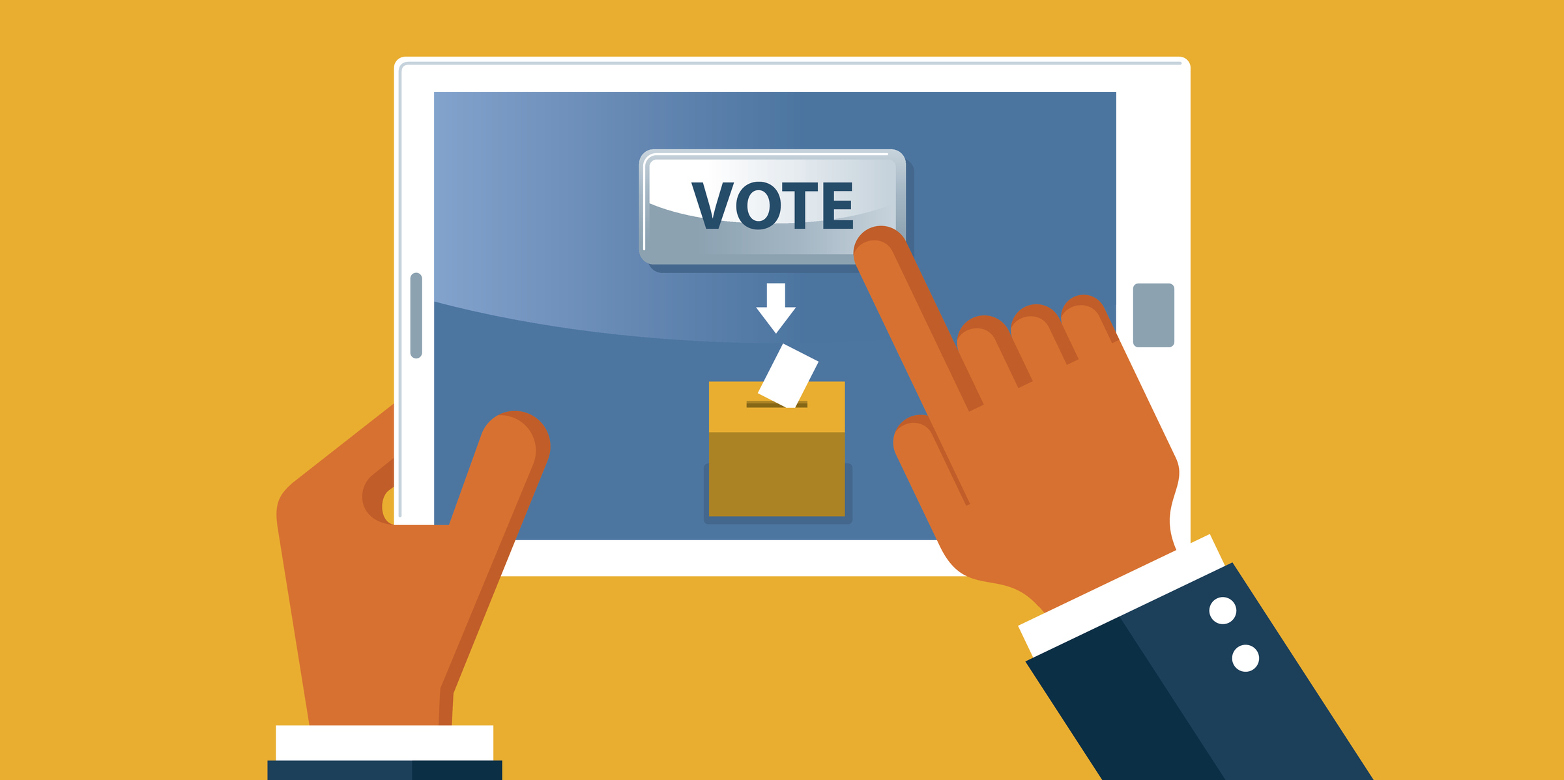Democracy 3.0
A digital democracy would usher in completely new political possibilities that are worth considering, believes Roger Wattenhofer.

Swiss democracy ultimately has its origins in the Landsgemeinde: an annual outdoor event where a canton’s eligible voters convene to decide the issues of the day. Today, however, the vast majority of Swiss people practice Democracy 2.0: we write “Oui” or “Nein” – or a list of names – on a sheet of paper. Our decisions then either go into a ballot box or are sent via Swiss Post. Now, as yet another side effect of digitalisation, the debate has turned to e-voting: replacing the paper ballot with an app. Modern e-voting systems can safeguard the secrecy of the ballot and, at the same time, guarantee the verifiability and integrity of the vote. By contrast, we have to admit that the Landsgemeinde has problems with the secrecy of the vote, and paper ballots have problems with verifiability.
Improved democracy thanks to an app?
Whether electronic voting is actually secure is an extremely important discussion but, like most disputes among experts, it is sometimes a bit dull. I find the question of whether digitalisation can advance our democracy much more exciting. Does an app offer added value over paper? After all, an innovation is most interesting when it opens up new possibilities. Can an app actually improve democracy?
I should probably begin this discussion by saying that I am a Swiss national and, as such, believe that democracy – and especially direct democracy – is a wonderful thing (as most of my fellow citizens probably do too). Non-Swiss citizens are often far more sceptical in this regard – they don’t trust the people to put the cross in the “right” box. This criticism is not entirely unjustified considering that, in some instances, up to 25% of the ballots cast are invalid.

We always need some grasp of the issues
But democracy isn’t a question of having faith in the intelligence of voters. Rather, it is a fundamental belief that all people are equal, regardless of factors like income or education. Making decisions on issues in a direct democracy needn’t be any more complicated than holding elections in a representative one. In the end, elections in representative democracies present the same problem, just one step removed: people who don’t understand the issues can’t really assess which party – or lobby – will follow the best line on those issues.
If you aren’t convinced by that argument, you should probably stop reading now. The remainder of my article is aimed at people who believe in the most direct democracy possible. The question is: what are the potential benefits of a digital democracy? Some aspects are already recognised – for example, we can easily prevent people from casting invalid votes. Illegible handwriting is no longer a problem, and the app can provide feedback immediately if details are not entered correctly.
"Democracy doesn’t get more grassroots than that!"Roger Wattenhofer
Furthermore, if I live in the canton of Zurich, I have to write out a list of 35 names for elections to the National Council – a tedious task considering the huge number of candidates and the fact that I don’t have much faith in any individual party. An app could make our lives much easier in this regard. Today, platforms such as smartvote, for example, can already provide voting recommendations by working out who I agree with most on the issues. The app would also know my personal preferences (“No lawyers or members of boards of directors”) and could therefore help me select suitable candidates.
More nuanced voting
An app would also allow us to do much more than that, paving the way for greater nuance instead of simple yes or no answers. For example, we could ask people what annual budget should be allocated to public service broadcasting. Once all the figures were collected, the budget would be determined by taking the median of voters’ responses, so that precisely half the population preferred to spend less and the other half preferred to spend more. Democracy doesn’t get more grassroots than that!
Alternatively, all voters could express and prioritise which of the proposed solutions they liked best, for example: solution A is the favourite, B is the second favourite, and definitely not C or D. Thanks to digitalisation, it would be easy to hold more complex – and also more nuanced – votes like these.
Other innovations would also be conceivable in a digital democracy: as electronic voting is very cheap, we could hold votes on a greater number of substantive issues. And what if someone doesn’t feel like voting? Why not simply transfer their vote to a person or organisation they trust? Or, depending on the topic, to various people or organisations? As they would retain control of the delegated digital votes at all times, they could still step in should the representative fail to vote according to their wishes. We are already familiar with this principle in the form of delegated voting or “lexternal page iquid democracy” – but digitalisation would simplify it.
The digitalisation of democracy therefore has the potential to bring about comprehensive reform in our democracy. Electronic voting has its advantages in terms of verifiability, but this reason alone is not enough to justify introducing it in Switzerland. This form of voting becomes especially interesting if we are also talking about genuine added value and the huge potential of Democracy 3.0.
This post has also been published in «Schweiz am Wochenende».